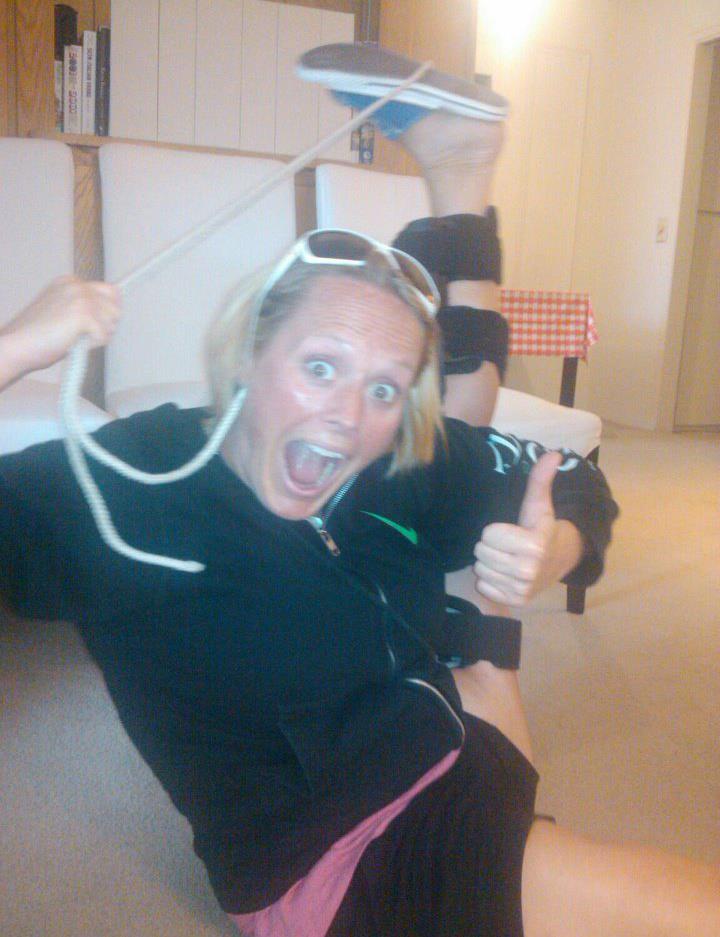
Five Tips to Comeback from Surgery Stronger
Written by Michele Vieux
Now you’ve done it – you’ve injured yourself badly enough to need surgery. It’s a tough position that many athletes find themselves in – and sometimes multiple times – throughout their careers. But it doesn’t have to be the end of the world. In fact, it is possible to come back stronger if you follow these five tips.
-
PREHAB – If you have the benefit of knowing you need surgery that isn’t emergency surgery, then you have the benefit of time and the opportunity to prehab your injured area so you can get ahead on your post-surgery rehab. For example, an athlete who is facing an imminent knee surgery should probably be laying off the squats leading up to surgery but can still participate in a variety of quad, hamstring and glute supplemental work to get the surrounding musculature strong and ready for a hiatus where it is sure to lose strength. The stronger you go into surgery, the stronger you come out, so make the most of the time leading up to surgery by adding these types of movements into your program.
-
REHAB – No matter how piddly and boring your physical therapy might be, do your exercises and as prescribed! This means to do them as they say and in the amounts they say. More is not always better and not doing them at all because you think you’re too advanced is a bad decision, especially if you’re dealing with a connective tissue injury; connective tissue becomes stronger much slower than muscle tissue and you don’t want any imbalances to occur. Experts gave you those exercises for a reason and doing them is in your best interest.
-
LISTEN to your doctor, physical therapist and other providers. Again, these are the experts and although you might think you know what’s best, they have many more years experience and many more patients under their belts. So unless you are a doctor, listen to yours.
-
HIRE A COACH – Sometimes we are our own worst enemies. Hiring a coach to work with you and design a program specifically for your needs will benefit you greatly. Not only will they pick the perfect exercises for you, but they will also make sure you don’t try to jump back in too fast or do things you aren’t supposed to be doing yet. They can be pretty creative about coming up with things you CAN do so that you don’t feel like you’re missing out and they will help prepare you for your monster comeback.
-
START FROM SCRATCH – Once you’ve been surgically repaired, all of your PRs are wiped clean. Start a new PR board for “Post-Surgery PRs”. Your 135 pound snatch is now at zero pounds and you should start with only the PVC and then slowly add weight each session. Even if you feel like you can do more, more than likely, and depending on how much time you had to take off from snatching, you will likely re-injure yourself or cause a new injury by trying to come back too quickly.
-
*BONUS TIP* – Start taking a stool softener and drinking lots of water the day before your surgery is scheduled and throughout the time you are taking pain killers post surgery. Anesthesia and pain meds are known for stopping your bowel movements and you don’t want to end up in great discomfort – or worse, in the hospital – because you are backed up (a.k.a “impacted”).
Hopefully you never injure yourself bad enough to need surgery but in case you do, I hope these tips help you bounce back stronger, faster and healthier than ever. For more on mindset and etiquette for the injured, check out Coach Michele’s Injury Etiquette.
I recently fell off a ladder and cracked my knee open. I’m scheduled for surgery on the 19th and am worried about recovery. I should probably do rehab exercises every day as you said. fernyhillsphysiotherapy.com.au/services